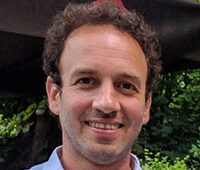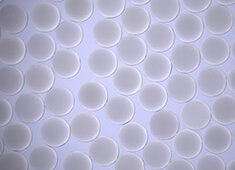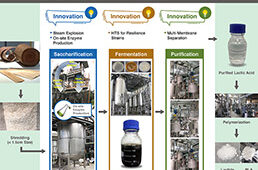Dr. Michael Biercuk |
Research
into the most sensitive measurement of force yet recorded has earned
University of Sydney physicist Dr Michael Biercuk, of the School of
Physics’ Quantum Science Group, the National Measurement Institute Prize for excellence in measurement techniques by a scientist under 35.
In collaboration with the Ion Storage Group
at the U.S. National Institute of Standards and Technology, Biercuk
demonstrated it is possible to use trapped atomic ions as extremely
sensitive detectors of applied forces and electromagnetic fields. In so
doing, the researchers were able to measure forces with extraordinary
sensitivity – down to the yoctonewton (yN) level.
The yoctonewton represents one septillionth of a newton, the unit of force named after physicist Sir Isaac Newton.
“This
award recognises Biercuk’s contribution to research in the most
sensitive measurement of force to date – the yoctonewton,” said
Innovation Minister Senator Kim Carr, who announced the award on Friday.
“This
is an incredibly small force – about a million million billion times
smaller than the force exerted by a feather lying on a table. And the
measurement is a thousand times more sensitive than anything previously
possible,” he said.
The
discovery provides an opportunity to address new challenges in
materials science, nanotechnology and industrial sensing. For example,
forces at the yoctoscale correspond to the weight of tiny nanoparticles
consisting of just a few dozen atoms, or the effects of tiny electric
fields on charges in nanoscale materials.
“By
characterising the detector’s sensitivity, a term with technical
importance, rather than just the minimum force we could detect, we
touched on an important area for industrial applications – the speed
with which a measurement can be performed,” said Biercuk.
“Even
if it isn’t necessary to measure force at such a tiny level as the
yoctoscale, our technique could simply be used to speed up the detection
of larger forces. Compared to previous record-setting techniques, our
measurement scheme would allow measurement of the same force about one
million times faster.
“This
ability to measure tiny forces at a dramatically enhanced measurement
speed is a key demonstration that may spark new interest in ion-based
sensors for applications such as the characterisation of nanomaterials
and standoff detection for the mining and defence industries.”
To
detect the force, Biercuk and colleagues used a device consisting of
about 60 beryllium ions confined in a Penning Trap, which stores charged
particles using electric and magnetic fields. Any movement caused by an
applied force was measured with a laser. The resulting measurement of
forces with sensitivity at the level of 390 yoctonewtons with just one
second of measurement eclipsed the previous record by three orders of
magnitude.
“I
am extremely grateful and humbled that this work was deemed significant
enough to warrant this distinction, and I’m very pleased that the
exciting new field of quantum science is having impacts on a variety of
disciplines, including measurement science,” said Biercuk.
“I’m
looking forward to new capabilities in measurement science emerging
from collaborations abroad and with my colleagues in the School of Physics and the Centre for Engineered Quantum Systems.”





